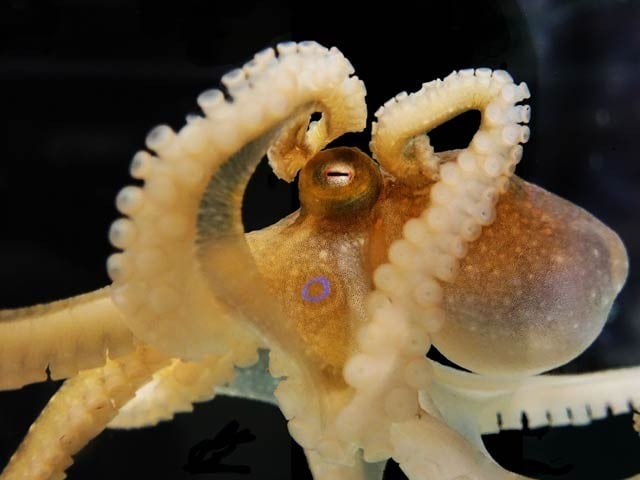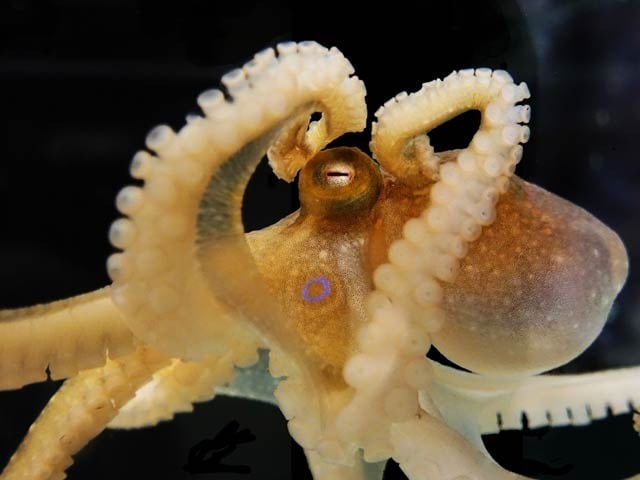
The California twospot octopus can change its RNA under changing water temperatures. Photo: File
Boston: Scientists recently announced that they have read the complete genome (genetic properties) of a type of octopus and now announce that the same octopus changes its RNA depending on cold and hot water.
We’ve already learned that octopuses are evasive, use simple tools, and have an amazing ability to hide. The reason is that their brains are abnormally large.
Now, a report published in the journal Cell says that octopuses change their genetic code under changing environments in such a way that it causes profound changes, particularly in their brains.
The research was conducted by Josh Rosenthal of the Aquatic Biology Laboratory in Woods Hole, Mesa, Massachusetts, and his colleagues. According to them, extreme heat and extreme cold can affect the brain, including the fragile brain of an octopus.
In this context, an octopus named California Twospot was studied and it was found that while swimming, they sometimes go into hot water and sometimes into cold water, and thus they have a hard time.
These octopuses change their RNA. RNA carries instructions to DNA to make the desired protein. Although some birds, humans, and bees can change small amounts of RNA in their brains, the California Towspot Octopus can do so with 60 percent accuracy.
Experts have noted up to 20,000 changes in the octopus’s protein after the change in RNA, and most of the changes occur in a single day!
Thus they adapt themselves to hot and cold environments.
(function(d, s, id){
var js, fjs = d.getElementsByTagName(s)[0];
if (d.getElementById(id)) {return;}
js = d.createElement(s); js.id = id;
js.src = “//connect.facebook.net/en_US/sdk.js#xfbml=1&version=v2.3&appId=770767426360150”;
fjs.parentNode.insertBefore(js, fjs);
}(document, ‘script’, ‘facebook-jssdk’));
(function(d, s, id) {
var js, fjs = d.getElementsByTagName(s)[0];
if (d.getElementById(id)) return;
js = d.createElement(s); js.id = id;
js.src = “//connect.facebook.net/en_GB/sdk.js#xfbml=1&version=v2.7”;
fjs.parentNode.insertBefore(js, fjs);
}(document, ‘script’, ‘facebook-jssdk’));



